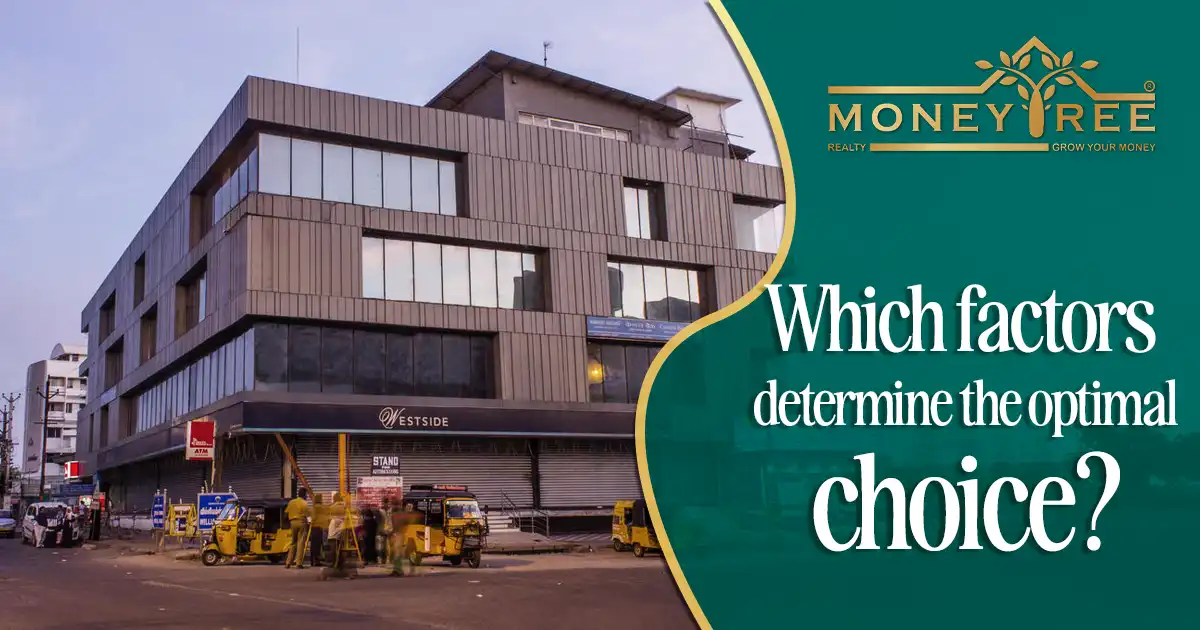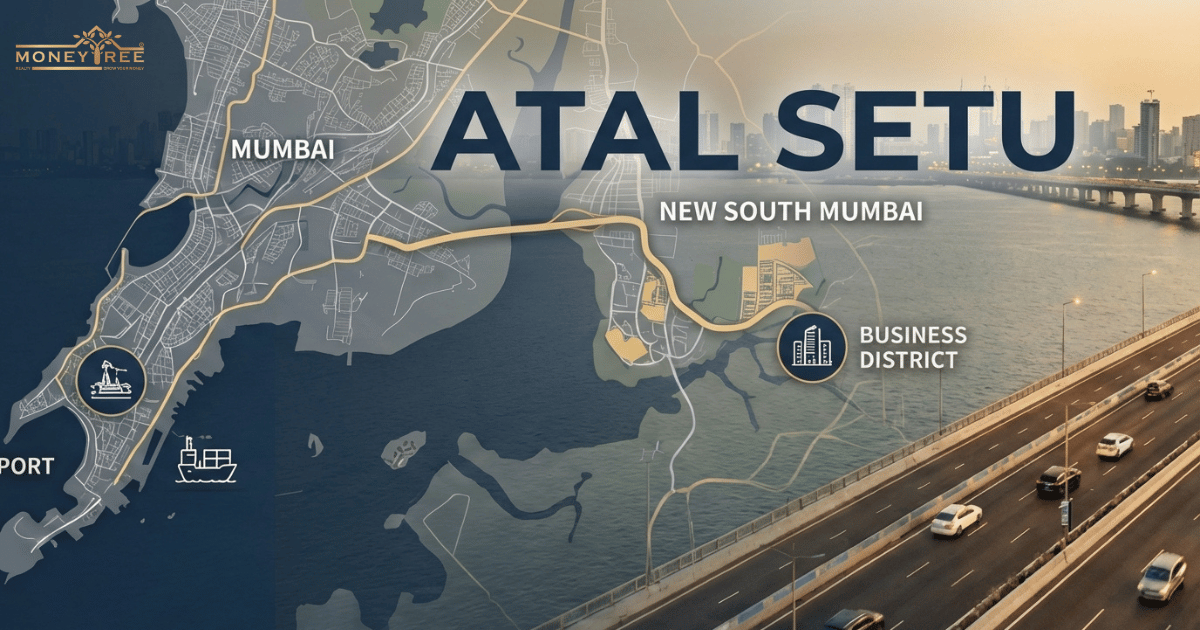Table of Contents
Make smarter commercial real estate decisions with our detailed lease vs buy analysis. Explore upfront costs, ROI potential, tax advantages, flexibility factors, and strategic investment approaches tailored for Indian businesses and investors seeking optimal property solutions.
Leasing and buying are the most common methods of acquiring commercial real estate. But the choice between the two depends upon multiple factors including personal goals and financial capabilities. So most people get confused when deciding between long-term gains leasing vs owning business space as both options have their own strengths and weaknesses. So, in this article, we will explore the various commercial property funding options India, commercial real estate investment strategies and pros and cons leasing vs buying commercial property. Consider reading about future-proofing your real estate investments for long-term strategic insights.
Core differences between commercial property leasing vs buying
In the real estate market the most common dilemma faced by investors is whether to optimise profits by leasing or buying commercial real estate. Every choice will take the investor to a distinct financial avenue. So it is very important to make an informed decision rather than picking an investment route randomly. For this let's look at the fundamental differences between leasing and buying in order to determine which suits a wide range of real estate participants.
What is Leasing In Real Estate?
Primarily a lease is a contractual agreement between the commercial space owner and business/tenant. This contract allows the firm/business to use the property for the time specified in the agreement in exchange for regular rental payment to the property owner. The lease has all the details about rental amount, maintenance charges, repair cost (if any), period of contract validity and so on. Leasing generally allows more flexibility to businesses in terms of low upfront cost. There are many different kinds of leases like gross lease, net lease and so on. There is also the unique case of leaseback commercial assets which allows the original asset owner to keep using the property without owning it.
Thus, given the flexibility and freedom of leasing, many investors choose this option as opposed to directly owing the commercial space.
What is Buying In Real Estate?
Buying commercial real estate generally entails gaining ownership of the property through direct purchase. This can be done either through loans or from personal financing. But this method of ownership requires extensive financial planning, proper research, identifying liabilities and setting up realistic investment goals. Once a commercial property is bought, the owner becomes solely responsible for it and has to manage its taxes, maintenance and other miscellaneous expenses. Although buying does not provide the flexibility leasing business property it does have its own benefits. Ownership gives investors complete control over the property, opens avenues for gaining from capital appreciation commercial property and allows for some tax advantages.

Should I lease or buy commercial space ? Which factors determine the optimal choice?
The decision to lease or buy a commercial space depends on several factors. The major criterias to consider before deciding on either of the two include financial capability, flexibility desired, long term business goals, business size and market condition. Here we will discuss some of these factors to better understand the commercial real estate investment strategies in India. For expert guidance, consult with professional real estate consultants.
Market Condition And Location
Location and market condition are two crucial factors to consider before buying or leasing any commercial property. When markets are booming it is wise to purchase a property rather than leasing it to get the optimal benefit of capital appreciation and build equity. Similarly when the property markets are volatile and at risk of generating losses, businesses generally prefer multiple exit options for commercial real estate investment which can be found in leasing. The role of location is similarly quite unique in determining profitability of a business. Prime areas with high visibility, easy access and seamless connectivity are ideal for commercial purposes and are generally sold at higher price points. Explore commercial properties in Gurgaon for prime location options. So, investors with limited funds may opt to lease a property than buy in such cases.
Leasing also provides flexibility of relocation. If the market in a particular site experiences an economic downturn, a business owner leasing his/her commercial space can simply relocate without facing much financial losses. Hence interested business owners, firms etc must carefully consider all the modes of investment before choosing one to optimise their results.
Investment Goals
Investment Goal is yet another crucial factor to consider before deciding between lease vs buy commercial real estate. Although ownership offers stability and complete control over the acquired property, it also requires rigorous financial planning, assessing future profitability and rental outcomes and understanding financial risks associated with it. If the investment goal is to build equity and accumulate wealth, buying might be the ideal option. Read about how to calculate ROI on property investments to make data-driven decisions. Even when we consider tax benefits buying vs leasing an office in India, the former has more leverage.On the other hand, leasing comes with a certain level of flexibility and lower upfront cost that is hard to ignore. Leasing transfers some property responsibilities like maintenance and management to the original owner which ultimately benefits the business. The financial risk is often minimised in leasing. Thus leasing can be the optimal choice for people looking to reduce operational risks.
Business Size
Business size is a pivotal factor that helps in choosing between lease vs buy commercial real estate. Generally, smaller-new companies prefer leasing rather than buying due to lower financial commitment. It allows them higher flexibility and relocation options if need arises. The more established, larger businesses on the other hand prefer purchasing their commercial spaces to get complete ownership. It provides them higher control over how they operate and ensures the entire profit of capital appreciation comes to them.

Pros and cons leasing vs buying commercial property
There are several pros and cons of leasing vs buying commercial property which can be listed as below :
Benefits of leasing commercial property India
Cons of leasing commercial property India
Pros of buying commercial property in India
Drawbacks of buying commercial real estate in India
Financial comparison lease vs buy commercial investment
A thorough financial comparison between leasing and buying is required before deciding to choose either of the two options. If we follow the latest leasing trends in the commercial property sale market India, we can see it has lower initial investment cost, and higher relocation flexibility. It is ideal for small-scale businesses and new firms. On the other hand, purchasing a property requires a lot of financial planning and often involves loans as a funding option. But buying a commercial property gives the owners complete control over the asset and opens avenues for potential tax benefits. Ownership also means opportunity to gain rental income and profits from capital appreciation.

Ultimate guide to understand the best option for commercial real estate investors
Here are some key DO's and DONT's investors can follow to optimise their real estate decisions:
What should be followed :
What should be avoided :
Contact MoneyTree Realty for expert guidance on commercial real estate investments. Call us at +91 9732300007 to make informed decisions for your business!
Frequently Asked Questions







